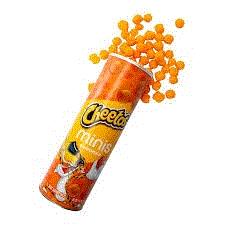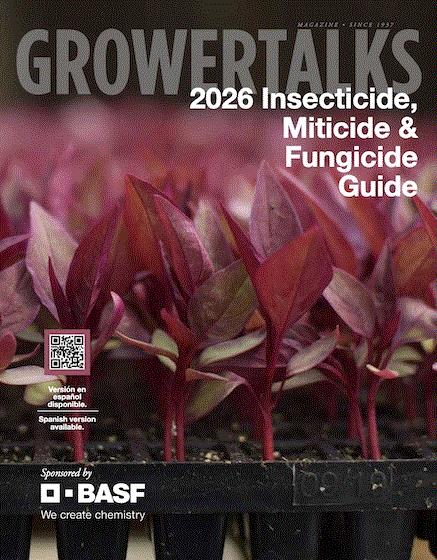Minis Are In
And by “mini” I mean things that are small in general. Yes, Mini Coopers are cool cute cars—especially the European version, but small things in general are adorable, as anyone who has ever met a maltipoo can attest.
According to the folks at Marketing Brew, marketing departments at companies as varied as Frito-Lay and Hermés are offering mini versions of some of their most popular products. Trader Joe’s has its mini logo totes, and Rare Beauty has its mini luminizers. There’s even mini Cheetos and Doritos!

Small versions of products let new customers sample products without breaking their piggy bank. And if your product is considered a luxury brand, the minis offer “little luxuries”at an affordable price. It’s a way of testing a product to be sure you want to commit to a more expensive, full-sized product. Plus, as a director of marketing for a beauty brand said in the piece, “There’s definitely more of an opportunity for virality when something is small and cute.”

Mini plants are a popular way to hook consumers on horticulture. If you’re like me, you made your mom buy you a 2-in. baby tears when you were a wee young thing. If all things miniature are in, then I think it’s time to push those 2-in. houseplants and talk about terrariums as “mini oases” to pull in the reference to “mini.”
Any other takes on minis you can use in your marketing? Tell me your ideas HERE.

Similar, but Bento
If you’re a reader of my buZZ! newsletter, you’ve been reading about each of the trends in Garden Media Group’s 2026 Garden Trends Report. One of the report’s seven trends is somewhat related to the popularity of mini things mentioned above. GMG called its trend Botanical Bento.
You might be most familiar with the term “bento” from having it as a (typically lunchtime) choice at your local Japanese restaurant, typically taking the form of a curated assemblage of noshables, each of them separate, but visually harmonizing as a whole. Give bento a horticultural instead of culinary twist and you have yourself a botanical bento.
The Garden Trends Reports explains the pleasure of a bento box this way: “Everything has its place. Every element is curated. It’s portable pleasure, packaged with care. That’s what today’s consumer craves. Not just ‘little treats,’ but lovely moments made accessible. It’s not random. It’s art. This is the antidote to doomscrolling, and brands that offer organized delight stand out. Can you create the same feeling for a garden in a box?”
I bet your mind is whirling with the ideas for arranging plants in a bento-like design. Thoughts on how that can be done? Read Garden Media Group’s 2026 Garden Trends Report in full at this LINK.

The 2026 IMF Guide
IMF stands for Insecticide, Miticide & Fungicide, and Ball Publishing’s latest ’cide guide is ready to help you understand and use these tools for your crops—whether tropical or otherwise. There’s a lot of updates to these treatments each year, so the folks at GrowerTalks magazine update the Guide for any changes in formulation, application, recommendations and labeling.

The guide is organized into an easily understandable and searchable form, with quick guides and tables where necessary. Scattered among the guides and tables are stories and case studies with the fun and informative feel that only my Ball Publishing colleagues can assemble. Fun-to-read stuff about decimating bugs? Yes, it’s possible!
This guide is free, thanks to the folks at BASF for sponsoring it. And it’s conveniently available in both English and Spanish, so you can share it with your entire team. Just click on the language in the previous sentence to download.
Tropicals-Related Legislation Introduced
Tropical crops in Hawaii are a vital economic export for the Pacific archipelago state. Hawaii’s U.S. senators and congresspeople last week introduced legislation in D.C. to protect their important economic tropical crops from pests and diseases. The “Tropical Plant Health Initiative Act” was introduced by U.S. Senator Mazie K. Hirono and U.S. Representative Jill Tokuda, along with the rest of the Hawaii Congressional Delegation. The legislation proposes to expand research and grant funding opportunities to help combat pests and diseases affecting tropical plants including coffee plants, macadamia trees and other Hawaii staple crops.

The bill would increase support for tropical plant research by prioritizing relevant applications for USDA National Institute of Food and Agriculture (NIFA) grants and creating dedicated funding. This would unlock targeted federal support for research and development, integrated pest management and other initiatives to protect and improve the health of tropical floriculture and nursery crops—all critical to Hawaii’s agriculture and economy.
“In Hawaii, and many other states across the country, we rely on growing and exporting tropical plants to boost our economies,” said Senator Hirono. “Conducting research to protect and maintain crops—such as coffee, macadamia nuts, mangos, and vanilla—is crucial in order to understand and mitigate any threats posed to these plants. I’m glad to join my colleagues in the Hawaii Congressional delegation in introducing this legislation to bolster our tropical agriculture and support our local farmers and producers.”
I’m glad to see Senator Hirono mention “and many other states across the country,” as that makes this a broader-reaching bill giving it a better chance at passing. While the crops mentioned above are more agricultural than horticultural, “floriculture and nursery crops” are specifically mentioned within the text of the bill. Read the official text of the bill (it’s only three pages—you can do it!) and encourage your elected representatives to back this initiative.
If you have any comments, questions or suggestions for content, email me about them at ewells@ballpublishing.com.

Ellen Wells
Senior Editor
Green Profit
This edition of Tropical Topics was sent to 28,941 loyal readers!
If you're interested in advertising on Tropical Topics, contact Kim Brown ASAP!